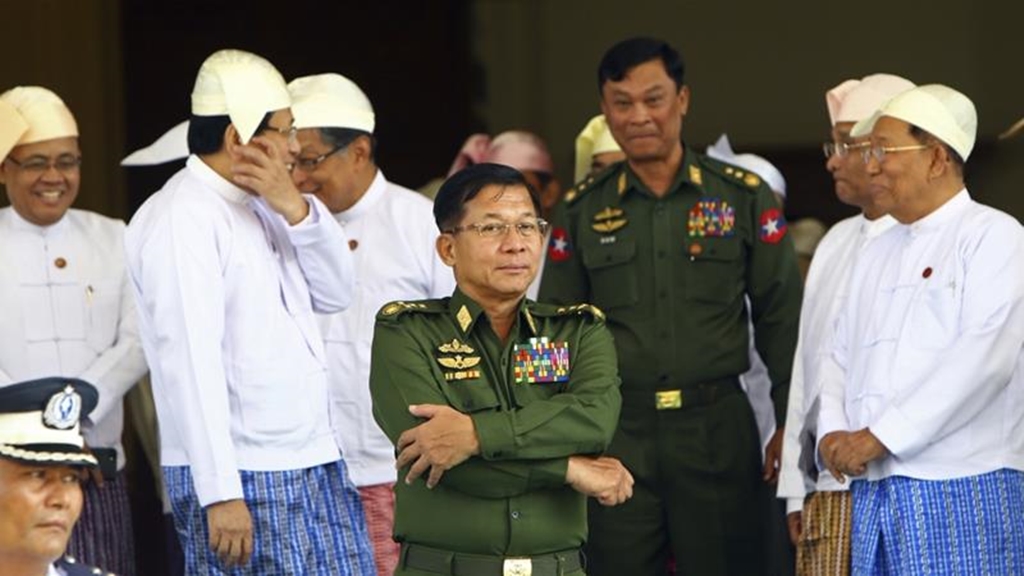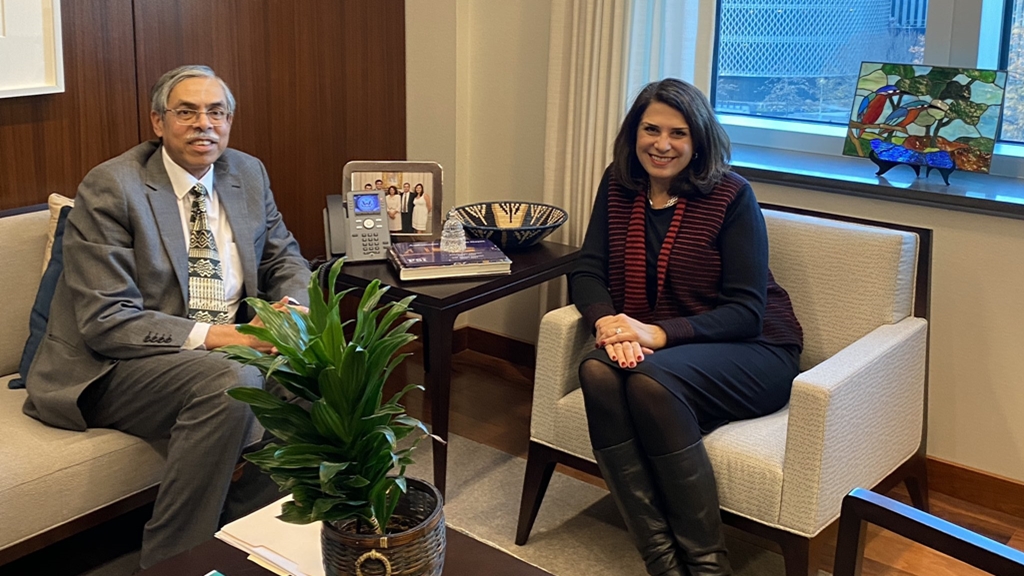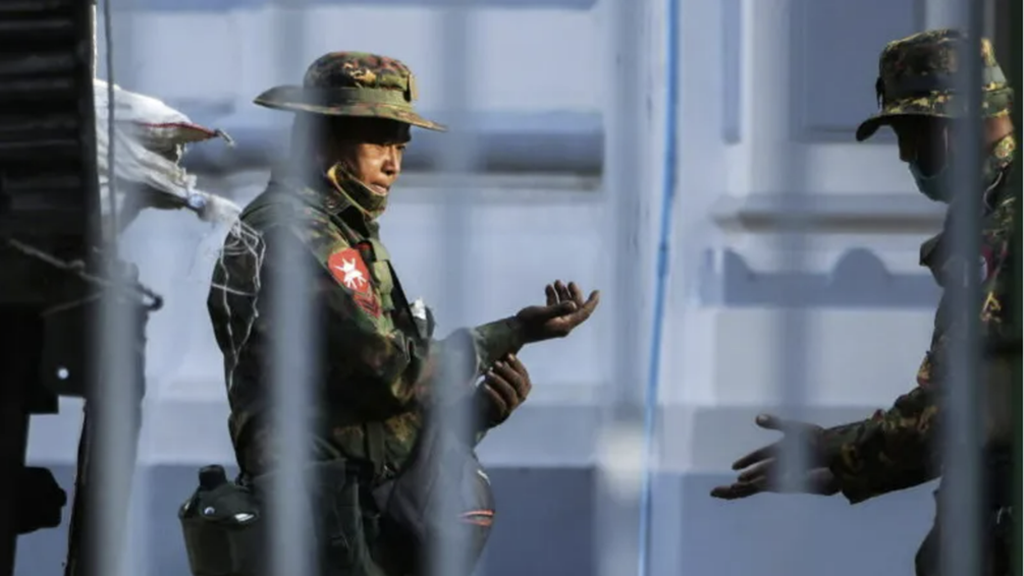
Only These Soldiers are not Guilty of Atrocities against Rohingya
- 05/07/2020
- 0
By Aman Ullah
According to the AFP news, three Myanmar military officers were found guilty by a court-martial investigating atrocities against Rohingya Muslims in conflict-ridden Rakhine state.
On 30 June 2020, the Myanmar military announced that three of its officers were found guilty and convicted by a court-martial for the 2017 massacre of Rohingyas in Gu Dar Pyin Village of Buthidaung Township, where five mass graves were previously uncovered.
The rare action against military members came as Myanmar faces charges of genocide at the United Nations’ top court over a brutal 2017 crackdown against the Rohingya.
Rights groups accused security forces of committing atrocities in various villages, including Gu Dar Pyin, where they alleged at least five shallow mass graves had been found.
After initially denying the allegations, the military started court-martial proceedings in September, admitting there had been “weakness in following instructions” in the village.
The commander-in-chief’s office announced on June 30 that the court-martial had “confirmed the guilty verdict” and sentenced three officers. No details were provided on the perpetrators, their crimes, or sentences. Estimates from survivors in Bangladesh put the death toll from the village in the hundreds.
The government has largely supported the army’s justification of the 2017 operations as a means of rooting out insurgents. Civilian leader Aung San Suu Kyi admitted at the International Court of Justice in December, however, that disproportionate force may have been used. The military has maintained any atrocities were committed by a few maverick individuals.
In March 2018, the first court-martial sentenced four military officers and three soldiers to 10 years in prison for killing 10 Rohingya men in Inn Din village. But the perpetrators were released in less than one year whereas the two Reuters journalists, who exposed the massacre, were detained for more than 16 months before they were pardoned following a global outcry.
UN investigators also found evidence of extrajudicial killings in other Rakhine villages, Maung Nu and Chut Pyin. The army chief’s office said June 30 a court of inquiry would “continue to investigate” events at both villages.
The state remains a flashpoint of ethnic and religious tensions, and the military has been locked in battle since January last year with Arakan Army (AA) fighting for more autonomy for peoples of Arakan.
For years the Myanmar military has denied any atrocities against Rohingya; and the State Counsellor Aung San Suu Kyi told the International Court of Justice, in December 2019, that the government largely supported the army’s justification of the 2017 military “operations.”
Since 2016, Rohingyas of Arakan are facing yet another round of massacre. They not only the receiving end of indiscriminate use of bullets, bayonets and firing from helicopter gunships; their homes, hearths, livestock, crops and businesses are being consumed by bellowing fire deliberately lit by the Burmese security forces and their Rakhine cohorts. The carnage follows a series of coordinated attacks by ethnic Rohingya militants on August 25, 2017, against 25 security posts.
Thousands of civilian Rohingyas were killed and about a million Rohingyas have fled to Bangladesh and Satellite imagery shows vast areas of territory ablaze.
The Burmese military try to brand the Rohingya militant as ‘Jihadists’ in order to render them as dreaded and hated ISIS fighters. There is no evidence that these militants are imbibed in extremist interpretations of Islam. From their statements it is clear that they no longer wish to continue in ghetto-like conditions that they have been subjected to for generations without any identity and future, and what they simply want is “equality before the law, freedom to live in peace, freedom to move about so that they can work, earn a living and feed their children, a recognition that they are citizens and they belong in Burma, not in Bangladesh”. They have made it amply clear that their goals “are not creating an Islamic state in the predominantly Buddhist country, nor independence from Burma”.
Calling the militants an organised force is also a clever ploy. It provides the rationale for the Burmese army to mete out excessive use of force. The fact is “these militants are armed with most primitive machetes and farm tools, equipped with some mobile phones and use of the most primitive type of explosives”. There has not been an iota of evidence furnished by quarters including the high-tech western intelligence agencies to support the claims that these militants are receiving AK-47s and Arab money. The mainstream media only cites “un-named intelligence sources”—whatever that means.
This bloodbath is not an isolated occurrence rather it follows decades of systematic discrimination, persecution, and dehumanization, which has served to legitimize multiple waves of violence and now, leaves the increasingly-helpless Rohingya on the edge of genocide.
The country’s military, the backbone of all governments since 1962, has pursued varied and evolving strategies to reduce, remove, replace, relocate and otherwise destroy the Rohingya. The state’s strategies range from framing the Rohingya as ‘British colonial era farm coolies’ from the present-day Bangladesh who came to British Burma only after the 1820s to painting the impoverished and oppressed Rohingya as potential Islamists intent on importing terrorism from the Middle East. From formulating and spreading the view of the Rohingya as aliens to enacting a national citizenship law to strip the Rohingya of their right of belonging – citizenship – to Burma.”
Burmese regime always tries to deny and to reject the Rohingya as one of the country’s indigenous peoples although pioneering historical studies by G.H. Luce and Then Tun as well as ethnolinguistic studies carried out by some British East India Company staff dating back to the 1780s firmly establish the integral presence of the Rohingya as a distinctly Muslim population of the then Arakan kingdom.
Accusations of rape, torture, forced removals; forced labour, child labour, detention and killings are widespread and have been well-documented. Further, there have been major restrictions placed upon Rohingya reproductive rights, the ability to move freely and access to basic social services. UN has called them ‘one of the most persecuted minorities in the world’.
The security forces in Myanmar have a well-documented history of human rights violations, including against ethnic minorities. This has included the use of military campaigns in different parts of Myanmar to forcibly transfer populations within national borders and deport them beyond national borders. Such campaigns took place in northern Rakhine State in 1978 and in 1991. In 2016 and 2017, the UN, credible nongovernmental organizations, and the media, have alleged that attacks against the Rohingya population by the Tatmadaw have been both widespread and systematic, and have included acts of: murder; deportation or forcible transfer of population; imprisonment or other severe deprivation of physical liberty in violation of fundamental rules of international law; rape; and persecution against an identifiable group.
These operations are directed by the Tatmadaw’s Western Command, overseen by the Bureau of Special Operations in Nay Pyi Taw, which reports to the Commander-in-Chief. Major General Maung Maung Soe was the then chief of the Western Command. Under his command, the Myanmar Police Force and its Border Guard Division with its Border Guard Forces have also been involved in the recent operations in northern Rakhine State, as is the established practice during large-scale security operations in Myanmar. The General Administration Department of the Ministry of Home Affairs, also effectively under Tatmadaw command and control, has invoked temporary emergency orders based on Myanmar’s criminal law.
UN investigators reported they found widespread evidence of extrajudicial killings, rapes, and arson attacks perpetrated with genocidal intent and called for the prosecution of top army generals, including Commander-in-chief Gen. Min Aung Hlaing, for genocide, crimes against humanity, and war crimes.
The Tatmadaw has overall command and supervisory responsibility for armed forces throughout the country, The Tatmadaw, headed by the Commander-in-Chief Senior General Min Aung Hlaing, is the primary institution responsible for carrying out the most recent security operations in northern Rakhine State since 25 August 2017.
Hence, only these three Soldiers are not guilty of atrocities against Rohingya they are simply obeying the command of their Commander-in-Chief. If somebody is guilty of atrocities against the Rohingya it is only Gen. Min Aung Hlaing the Commander-in-Chief. He is the most responsible person for all these crimes including genocide, crimes against humanity, and war crimes and all other personals of the army are only following his command.







